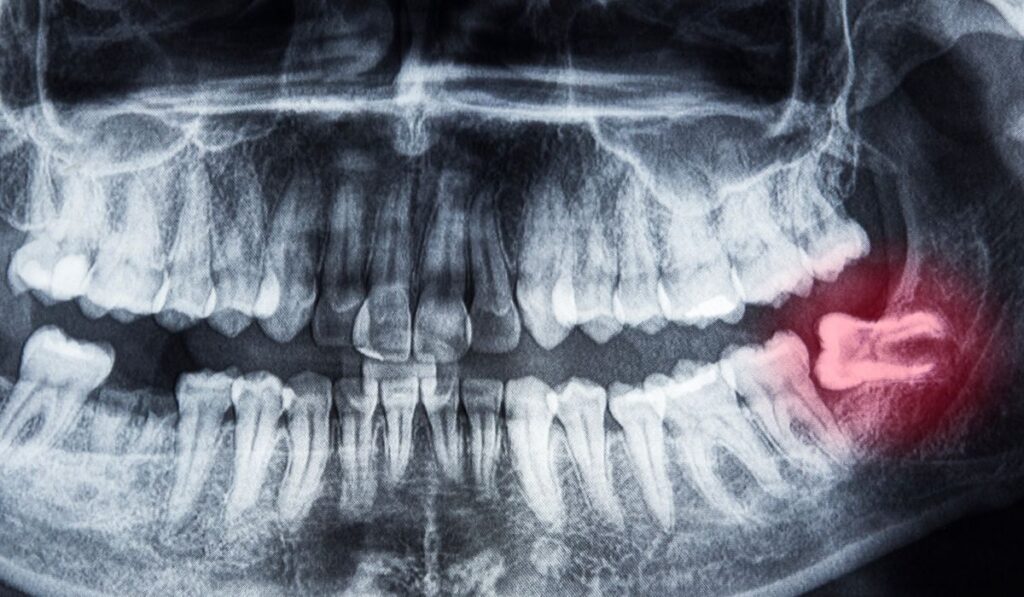The decision to extract wisdom teeth depends on various factors, and it is typically made based on the individual’s specific situation. Wisdom teeth, also known as third molars, usually emerge in late adolescence or early adulthood. Here are some common reasons why extraction may be recommended:
Impaction:
Wisdom teeth often don’t have enough space to fully emerge properly. They may become impacted, meaning they don’t fully break through the gum line or come in at an angle. Impacted wisdom teeth can cause pain, swelling, infection and a difficult to clean.
Crowding:
The presence of wisdom teeth can lead to overcrowding in the mouth, causing misalignment of the existing teeth. This can result in orthodontic issues that may be addressed by removing the wisdom teeth.
Infection or Gum Disease:
Wisdom teeth are positioned at the back of the mouth, making them more challenging to clean properly. This can lead to an increased risk of infection or gum disease. In some cases, the gum tissue covering an impacted wisdom tooth can become infected, causing pain and swelling.
Cysts or Tumors:
Cysts or tumors may develop around impacted wisdom teeth, potentially causing damage to the surrounding teeth and bone.
Decay:
Wisdom teeth are more prone to decay due to their location and difficulty in cleaning. Decayed wisdom teeth may need to be extracted to prevent further complications.

However, not everyone needs to have their wisdom teeth removed. Some people have sufficient space in their jaws, and their wisdom teeth come in without causing issues. Regular dental check-ups and X-rays can help your dentist monitor the development of your wisdom teeth and determine whether extraction is necessary.


Recent Comments